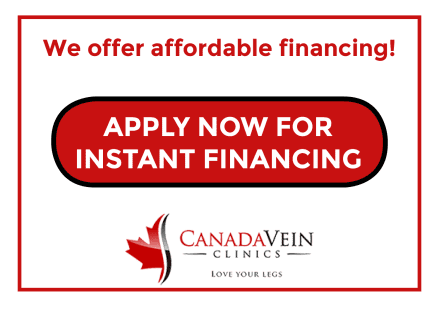At-home treatment myths It may seem that as quickly as your varicose veins appeared, they can also disappear on their own. Unfortunately, this is not the case! Varicose veins will not go away without treatment, and it is in fact better to get your legs treated as soon as they become an issue as the […]
Does Botox help to remove Varicose Veins?
It may seem like an easy solution to remove your varicose veins but think twice before you try Botox injections as a treatment option. There are numerous treatment options to remove varicose veins. A common misconception about treating the condition includes using Botox to remove the veins. Unfortunately, it is a myth that Botox is […]
Does Menopause Cause Varicose Veins?
Does menopause cause varicose veins? It is common knowledge that when pregnant you have a predisposed risk to develop varicose veins, but is this also the case for women going through menopause? Continue reading to find out the reasons why you may be more at risk to develop varicose veins if you are going through […]
Can Certain Foods Make my Varicose Veins Worse?
Alcohol, foods high in sugar content, and foods that are high in salt can be the culprits that worsen your varicose vein symptoms. It may seem odd that a food can amplify your symptoms but simply maintaining a healthy diet can relieve some of your pain without medical treatment. Certain food groups should be avoided […]
Does Crossing my Legs Affect my Varicose Veins?
There is a common misconception associated with crossing your legs — many people believe that this comfortable seated position will actually cause Varicose Veins to develop. This is in fact false, and in reality standing for prolonged periods of time can be more likely to cause the condition rather than crossing your legs. If however, […]
Can I Get Varicose Veins If I’m Young?
Do Varicose Veins affect younger people? Varicose veins are commonly associated with advanced age, and while it is true that older people are more likely to develop varicose veins, the condition can also affect younger people. Varicose veins can develop in teenagers, or young adults as well as in seniors. You may begin to notice […]
Superficial Vein Thrombosis: Complications of Varicose Veins
Superficial venous thrombosis (SVT) is a varicose vein complication that can cause pain and tenderness. Correctly diagnosing and monitoring the condition is important to prevent other—potentially life-threatening—issues. Since up to 80% of SVT patients have varicose veins, it’s important to know the symptoms.
What You Need to Know About Your Stationary Job and Varicose Veins
If you work an office job, you probably know about the health risks associated with a sedentary lifestyle. n an effort to minimize problems, you may opt for a standing desk. However, both sitting and standing for long periods of time can affect your legs, potentially leading to vein problems.
Deep Vein Thrombosis (DVT): Complications of Varicose Veins
Patients with severe varicose veins should be aware of their increased risk of deep vein thrombosis (DVT). In some cases, a blood clot can develop in the deep veins and cause death. About 200,000 Canadians experience DVT each year.
Venous Ulcers: Complications of Varicose Veins
One of the most noticeable issues a patient may face is venous ulcers. When veins in your legs can’t circulate the blood back to your heart, the blood can pool, creating swelling and building pressure in the veins.











